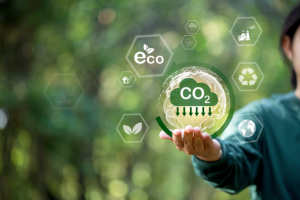In an age where technology is constantly changing things, ethical questions are important in determining how progress evolves. The speed at which technology changes things raises enormous possibilities and ethical questions. This article discusses the importance of considering ethics when achieving technological advancements. It also identifies some of the key issues and suggests ways to drive responsible innovation.
The Significance of Ethical Tech Developments:
Ethical advancements in technology are essential to building a safe and welcoming future for all. As technology expands into healthcare, education, and more, it is having a huge impact on our lives. The ethical aspects of these new technologies determine whether they will benefit society or create unintended problems and risks.
1. Protect your Privacy and Data
Privacy and data protection are two of the most important ethical issues in technology development. As more and more personal information is collected and used, a strong privacy protection system must be established. To ensure that private information is not accessible to those who should not have access, technology companies must make user consent, clear data practices, and the use of advanced security measures a top priority.
2. If AI is Biased and Unfair
Artificial intelligence (AI) has become a powerful force for change, but it also raises questions about fairness and bias. AI systems are often taught using old data, which may be flawed. The result can be discriminatory outcomes that exacerbate social inequality. For technology development to be ethical, people must work to identify and correct biases in AI systems so that everyone gets fair results.
3. Environmental Sustainability
Another ethical issue that is becoming increasingly important is the way technology affects the planet. The production, use, and disposal of electronics harm the environment. Adopting sustainable practices, such as making products that use less energy, reducing e-waste, and encouraging the technology industry to use renewable energy, are part of developing ethical technology.
4. Accessible and Everyone Welcome:
An important part of creating ethical technology is inclusive design. Technology must be accessible to everyone, including people with disabilities, so that everyone can fully participate in the digital age. When new technology is born, the focus should be on adding features that meet the needs of a wide range of users. This will promote inclusion and remove barriers to entry.
Ideas to Make Technology More Ethical:
Several approaches can be used to address complex ethical issues in technology development:
1. Moral and Ethical Rules and Guidelines
Having clear ethical rules and standards is important to help technology companies and developers. Governments, international groups, and businesspeople must work together to develop rules that protect privacy, ensure fairness, and address other ethical issues. These standards can be used as guidelines to ensure everyone is committed to responsible creativity.
2. Ethical Training and Education
Increasing ethical awareness in the technology industry is important. Integrating ethics into technical training and education can provide developers with the information and skills they need to deal with ethical issues. Fostering a culture of responsible decision-making in technology companies leads to a shared commitment to ethical behavior.
3. Interdisciplinary Collaboration
To achieve ethical technology development, people from different backgrounds must work together. This includes technologists, ethicists, politicians, and the general public. Teams in different disciplines can view creation from all angles, taking into account both technical and ethical aspects. Open communication and seeking feedback from different perspectives are key to achieving comprehensive solutions.
4. Monitor and Evaluate at All Times
The ethical implications of new technologies change over time. To identify and address emerging social problems, technology must be continuously monitored and evaluated. Technology companies must develop strong ways for people to give them feedback, regularly evaluate how their products affect people, and change their strategies to keep up with changing ethical standards.
FAQs
In summary, if we want to build a future that values equality, ecology, and people’s well-being, ethical issues must be taken into consideration when developing new technologies. As technology continues to develop, the ethical decisions people make today impact the progress of society. The technology industry can lay the foundation for responsible innovation by embracing open standards, encouraging collaboration, and always focusing on results. In addition to technical excellence, it is also ethical to respect privacy, include everyone, and take care of the planet. Working together, we can navigate the changing technological world with the shared goal of a more ethical, just, and sustainable digital future.
FAQs
1. Why is it important to consider ethics in production technology?
To ensure that technological advances have a good impact on society while respecting privacy, equality, inclusion, and environmental sustainability, it is important to consider ethical issues. They tell people how to use technology safely, reduce risks, and build a more equitable future.
2. What are the main ethical issues in technological creation?
Privacy and data protection, AI bias and fairness, environmental sustainability, and accessibility and inclusivity are key concerns. These sections discuss the ethical impact of technology on people, society, and the world.
3. How can AI reduce bias and make better decisions?
To reduce bias in AI, training data must be scrutinized, methods must be clear, and ongoing evaluation must be performed. For AI development to be ethical, people must be willing to identify and correct biases so that everyone gets fair results.
4. How can education ensure that technology is developed ethically?
It is important to educate people and encourage them to behave ethically in the world of technology. Integrating ethics into technology education can provide developers with the information and skills they need to make ethical choices and address ethical issues.
5. What role does technology play in protecting the environment?
Technology can help the environment by creating products that use less energy, reducing electronic waste, and encouraging the technology industry to use renewable energy.
6. How can collaboration help technology become more ethical?
A comprehensive understanding can be achieved by working with people from different backgrounds, such as technologists, ethicists, politicians, and the public. Collaboration between people from different fields encourages a whole-person approach that takes into account both scientific and ethical considerations, leading to more complete and responsible solutions.



